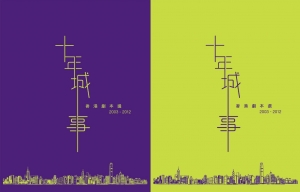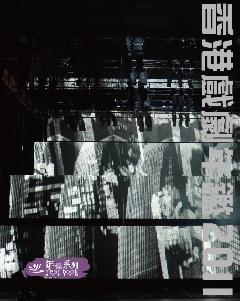In Uncle Vanya, a four-act play by Anton Chekhov, the protagonists, Vanya and his niece Sonia, have been diligently running the family estate. Sonia’s father, Professor Alexander Serebriakov and his wife, Elena, come to stay for the summer. Elena, Sonia’s stepmother, is beautiful and much younger than Serebriakov. The couple disrupts the life of the estate during their stay. There is much wailing about endless suffering with little hope that the future will change. In addition to pondering the meaning of a tedious life full of anguish, I especially like the rich portrayal of the relationship between the characters.
The professor, adored by Vanya’s mother, Maria, keeps Sonia and the nanny Marina busy serving him. Vanya clearly shows his resentment of Serebriakov, even to Elena. Serebriakov certainly arouses in Vanya anxiety and regret about his lowly life with little accomplishment. Perhaps he is also envious that Serebriakov, with no wealth and little status, could have a beautiful wife.
Vanya, and Astrov, the doctor initially summoned to treat Serebriakov’s gout, know too well that the best years of their lives have crept by. Astrov drinks heavily to forget his daily woes, which include treating many patients and having to see some of them die. He also tries to find enough time for forestry, which, as he reminds others, is a significant and worthy act for the improvement of the life of future generations. Each man is aware that the other is attracted to the beautiful Elena, but there is little hostility between the two men. In this production, they do not really seem in love with Elena, but they simply enjoy flirting with and teasing an attractive woman. In fact, the two seem fond of each other, drinking, singing and joking. When Astrov admits to Elena that he is not attracted to Sonia as a woman, and it is also obvious that he is not truly in love with Elena, one thinks that Astrov is really what he has claimed, no longer interested in love.
In Act 2, the tenderness between Serebriakov and Elena is shown in the bedroom scene. Elena wraps Serebriakov’s feet and body in blankets and feeds him medicine. The professor indulges in being cared for like a child, opening his mouth to take in the pill. Although Elena gets impatient with Serebriakov’s complaints about his ailments, she does attend to her husband’s needs and tries to soothe him. As he kisses and caresses Elena, Elena obligingly kisses him in return. Their interaction is that of the comfortable and predictable relationship of a married couple who settles into their roles and duties, with one seeking assurance of affection and the other obliging.
But Elena has another side. Vanya’s attention boosts her ego and helps to kill boredom. As she fends off Vanya’s attention and even reprimands him on the one hand, she tosses Vanya’s hair playfully after a quick spin round the room, when waiting for her husband to appear to start a family conference. Vanya laments that Elena is wasting her youth and beauty on her old husband, but later he catches her and Astrov kissing. Vanya doesn’t become furious and hurt though. This supports my opinion he does not love Elena. I like the director’s reworking of the scene in which Astrov and Elena bid each other farewell. Firstly, Astrov kisses Elena on the cheek, much to Elena’s disappointment. Elena then paces around the room, opening and closing doors, distraught, and finally plucks up the courage to engage in a tight embrace and kissing on the lips with Astrov. The scene presents Elena’s dilemma, showing her torn between restraining herself and giving in to her attraction to the doctor.
The most striking thing to me about Sonia in this production is her appearance, and especially her hair. Sonia laments her plain appearance, finding little consolation in a compliment on her hair. I find Sonia’s face attractive, and a couple of male audience members affirm the same. Sonia has a cap on her head for the first act. Her long lustrous hair is a surprise when revealed upon the removal of the cap. In a bit of business absent from the original text, Sonia flings her long brown hair like a model in a hair shampoo advertisement, perhaps as an act of defiance to Elena.
Next, I would like to comment on the set. Three haystacks laid on the bars suspended above the stage and remain still throughout the performance. I can imagine Sonia cutting the hay, and the haystacks are now waiting for Vanya, who has been idle and distracted for the summer. These haystacks complement the walls made of wooden planks on three sides of the stage. In the walls are doors of the same material. I am reminded of Astrov’s forestry, and how his cultivation can bring more wood. Instead of drawing the curtain and having stage hands changing the set, the tables and chairs are moved around by the characters to indicate a change of scene. A glass door, which also serves as a window, upstage right, shows a rainy night for the second act. With occasional thunder and the sound of rainfall, the stormy weather adds to the turmoil of all characters drinking and pouring their hearts out in the sleepless night. But the characters have their brief moments of enjoyment through music too. While the engagement in music seems more stifled in the original text, as only Telegin plays guitar, here in the production, music is unleashed when Elena plays with the medicine and vodka bottles to produce musical tunes, and men sing merrily on unrequited love.
The clock is an intriguing motif of time dragging on. Between two of the haystacks, a luminous clock shows the time 12:45 throughout the performance. When I am not looking directly at the clock, I feel its presence as a huge bulb resembling the sun or the moon, dictating the schedule and activities at the estate, witnessing Vanya’s many years of labour, and aging with Marina, Maria, Serebriakov, and everyone else.
The time on the clock is referred to when the family gathers to hear the professor’s announcement of his intention to sell the estate. Vanya gets very upset, as he has spent his best years working the land mostly for the professor's benefit. He storms out. Elena and the professor go after him. A shot is heard. The professor re-enters the stage, followed by Vanya who fires a second shot. When he said “Missed again”, it becomes clear he has missed the professor twice. In this production, Uncle Vanya does not seem to be angry enough to want to kill Serebriakov. Vanya bends down to fire the second time, taking a harder angle for a fatal shot. I interpret this scene to mean that Vanya only wants to frighten Serebriakov into worrying about the consequences of selling the estate.
At the end, Sonia is heard repeating, “We shall rest.” Indeed they will, as others have. Exemplifying the characters’ acceptance of the endurance till the end of their life, Sonia’s final speech brings a note of optimism as we shall rest in peace when we have done our part. However, Vanya does not seem to respond to her determination and her encouragement, undermining the impact of her words. As the performance ends, the haystacks are lowered to the stage. The audience sitting at the right sees the clock revealed for the first time after the haystacks are out of the way. While the time 12:45 may or may not be recalled by the family, the devastating event ending with the gunshot and departure will be talked about and remembered even after Marina, Maria, Vanya, Sonia, and I should add Chekhov, rest. The play, despite the anguish and gloom of suffering, is uplifting, owing to the characters’ courage to go on living for themselves and for others, and their hope that they will find at least solace, if not joy, when they are at rest.
本網站內一切內容之版權均屬國際演藝評論家協會(香港分會)及原作者所有,未經本會及/或原作者書面同意,不得轉載。








